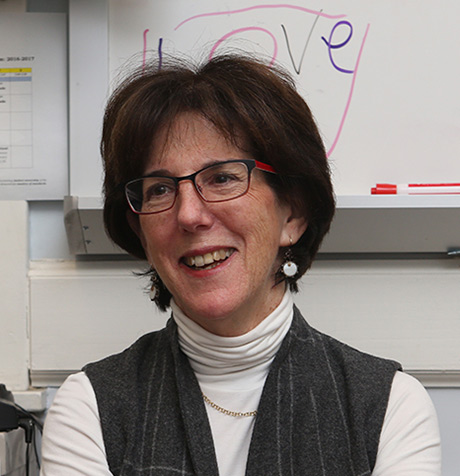
Ellen Freeman was a curriculum developer in Yonkers, New York, helping third graders explore why some objects float and others don’t, when she realized that some of the children had literally never played with water.
“That first day I just let them drop objects in a basin to see what happens,” she says. “The teacher and I spent hours afterward cleaning up, but it was worth it. Days later we did specific experiments, but right then it was enough just to let them enjoy the experience of discovery.”
For Freeman (M.A. ’88), who’d concentrated on social studies and language arts at Teachers College, it was a moment of discovery as well: of how the STEM subjects — science, technology, mathematics and engineering — can engage young minds.
I want all children to be exposed to the kind of incredible integrative curriculum that TC is famous for. I want them to be unafraid of mathematics and to see themselves as maybe one day having different kinds of career choices. I hope that TC teachers will inspire them to go out and do that.
“I’d started out as a special ed teacher, so I understood the power of a multi-sensory approach,” she says. “At TC, Heidi Hayes Jacobs and Maxine Greene taught me about how to build curriculum and about the magic of the arts — the possibilities for stimulating thinking outside the box. But social studies can be quite abstract. Children come to school with a natural curiosity about the world around them, and doing scientific inquiry is much more tangible and hands-on. You start out by asking, What do we know? and then, What would we like to learn? and then, What further questions do we have? Kids can see the results, develop a shared vocabulary and apply what they’ve learned to real-world situations. It opens up wonderment for them.”
In her next job after Yonkers — as Vice President of the lower school at Ethical Culture Fieldston (another venerable New York City institution shaped in part by John Dewey) — Freeman says she had the resources to take those ideas to the next level.
“Teaching tends to be done in subject area silos. STEM provides the opportunity to use all the skills taught in class to provide an integrated educational experience. For example, at Ethical Culture, our robotics program grew out of the students’ study of simple machines, coupled with their knowledge of computer programming. Kids could see that all subject matter is interconnected.”
Freeman retired five years ago, but today she volunteers as a school tour guide at New York’s Metropolitan Museum of Art — work she likens to being on a perpetual class trip.
“It's really perfect for me," she says. "As children’s guides, we don't lecture. Instead, we develop children’s skills of visual analysis through artful questioning and active participation.”
She’s also reconnected with TC, providing funding for STEM programming at the Teachers College Community School. A gift from Freeman has funded two STEM after-school clubs for fourth and fifth graders: a Maker Space club that met this past fall and a Games club that is meeting throughout Spring 2017. Students from TC's program in Instructional Technology & Media have been hired to lead the clubs.
“I can give to a lot of causes, but I always have children in mind — what will motivate them to pursue further education, to think big? I want children to be unafraid of mathematics, science and computer technology, and to see themselves as maybe one day having different kinds of career choices. I hope that TC teachers will inspire them to go out and do that.”
